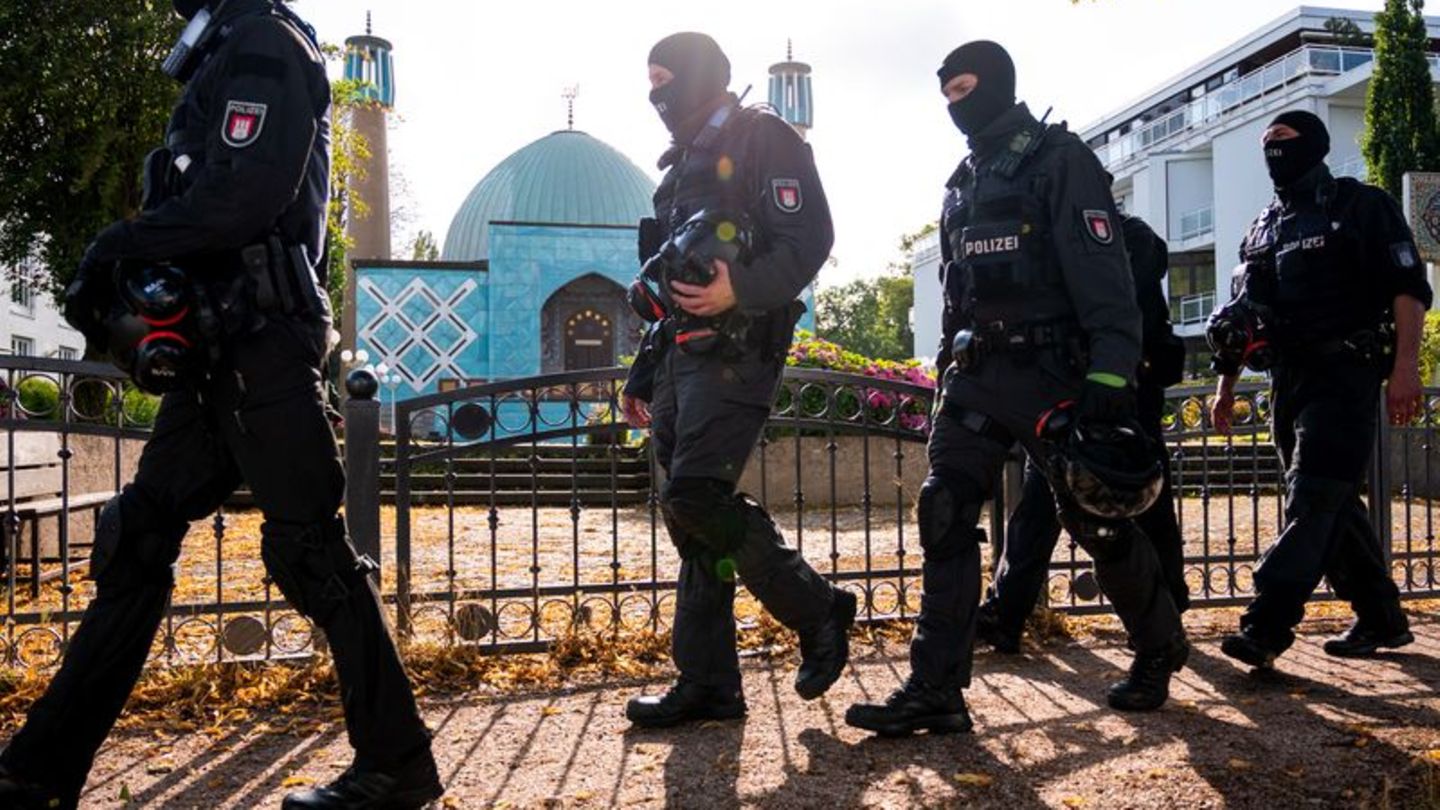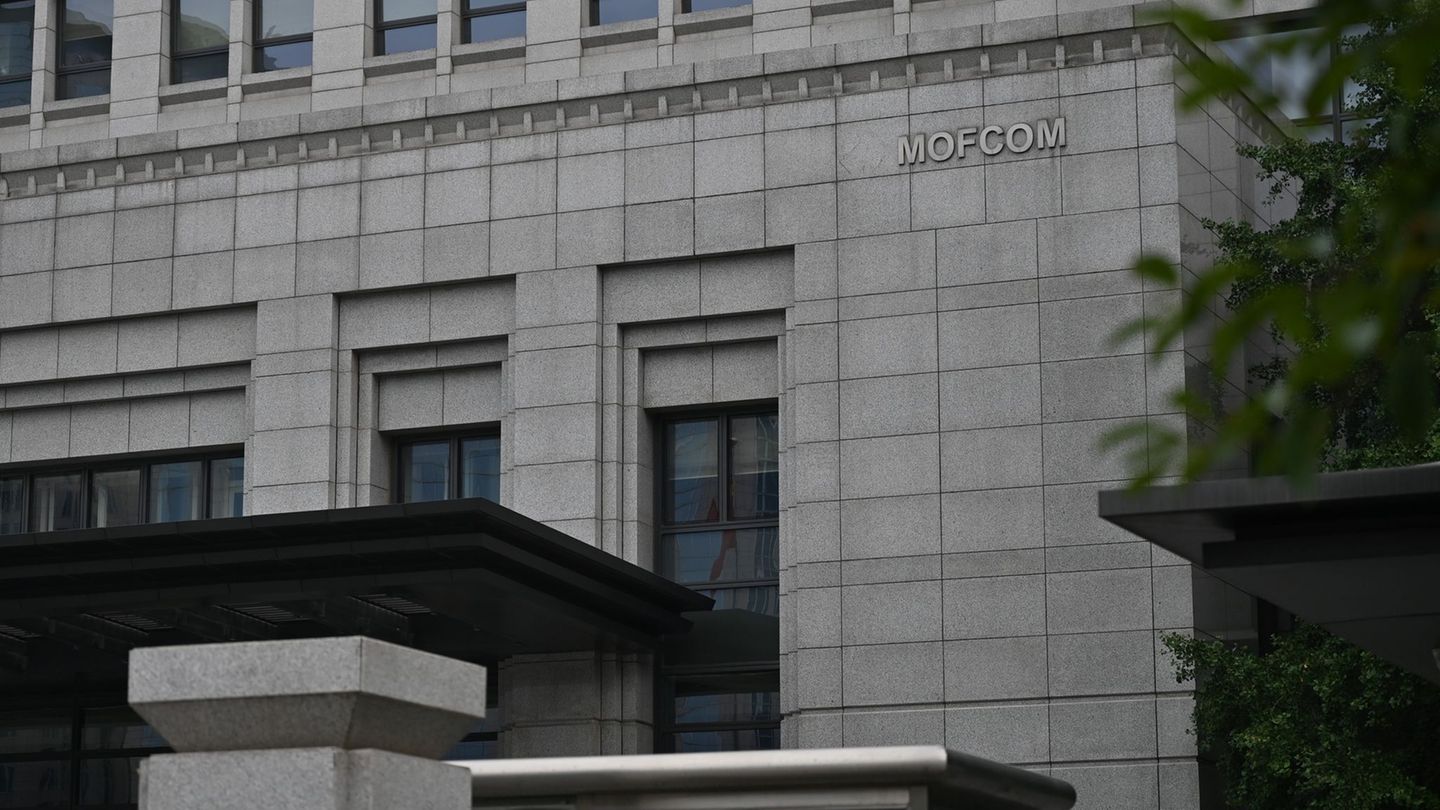The Islamic Center Hamburg, which operates nationwide, has been under surveillance by the Federal Office for the Protection of the Constitution for some time. There are several reasons why it took so long to be banned.
The Islamic Center Hamburg (IZH) and several organizations associated with it must cease their activities. 53 buildings and bank accounts will be searched nationwide on Wednesday. Federal Minister of the Interior Nancy Faeser (SPD) explained the reasons for her decision to ban the Hamburg Mosque Association and other Islamist Shiite associations. The most important questions and answers:
What is the reason for the ban?
According to the Office for the Protection of the Constitution, the IZH is a Shiite-Islamist association. The association is therefore aimed at spreading Islamic teachings as they correspond to the Iranian leadership’s understanding of religion. The Federal Office for the Protection of the Constitution considers the IZH, alongside the embassy, to be “the most important representation of the Islamic Republic of Iran in Germany”.
In November 2022, the Bundestag called on the federal government to examine “whether and how the Islamic Center Hamburg can be closed as a hub for the Iranian regime’s operations in Germany.”
In principle, associations are banned if their purpose or activity contravenes criminal law, if they are directed against the idea of international understanding or against the constitutional order. According to the Federal Ministry of the Interior, all three reasons apply to the IZH.
Why did the decision come now?
For an association dedicated to religious practice, it is not easy to separate this from extremist activities. Mosque associations are relatively rarely banned. One example is Berlin’s Fussilet Mosque, which was closed in 2017. It was considered a meeting place for Sunni extremists. The later Berlin Christmas market attacker Anis Amri frequented this place.
On November 16, 2023, the Imam Ali Mosque in Hamburg, also known as the Blue Mosque, and five other associations were searched. Material was confiscated which, according to the Federal Ministry of the Interior, provided sufficient evidence to justify the ban.
Calls for a ban had become louder after the brutal suppression of mass protests in Iran in 2022. The timing could also be related to the escalation of the Middle East conflict, in which the Iranian leadership is positioning itself against Israel verbally and by supplying weapons to allies. The Federal Office for the Protection of the Constitution wrote in its report for 2023: “Within Shiite extremist circles, a clear anti-Semitic and anti-Israeli attitude can often be detected, which is also propagated in various media channels.”
Why it took Faeser so long to impose the ban was inexplicable, said Alexander Throm, the Union’s domestic policy spokesman. After all, it has long been known “that the IZH is the extended arm of the Islamist regime in Germany.”
What functions does the IZH perform?
The IZH and the Blue Mosque on the Alster that it operates in Hamburg are used by Shiite Muslims of various nationalities as a central religious meeting point. Prayer events and religious celebrations have been held regularly in the mosque for decades. According to the Federal Office for the Protection of the Constitution, various courses are also offered there – such as Islamic religious instruction for children and lessons in Arabic, Farsi and German.
Who are the most important representatives of the association?
Mohammad Hadi Mofatteh has been the head of the IZH since August 2018. According to the Hamburg State Office for the Protection of the Constitution, he is considered the representative of the Iranian Supreme Leader in Europe. The latest Hamburg report from the Office for the Protection of the Constitution states about him: “Mofatteh is a well-trained representative of the current regime in Tehran. His family is firmly integrated into the state-religious elite of Iran.” He is required to report to the Supreme Leader of Iran, Ayatollah Ali Khamenei, and is bound to follow his instructions. According to information from security circles, documents were found during previous searches that clearly demonstrate this close connection.
At the end of 2022, the deputy head of the IZH, Seyed Mousavifar, was expelled from Germany because of his links to the Lebanese Hezbollah militia. He had previously failed in a second instance appeal against the expulsion before the Hamburg Higher Administrative Court. The pro-Iranian terrorist organization has been banned in Germany since 2020.
What will happen now with the confiscated club assets?
If the ban becomes legally binding, the association’s assets will become the property of the federal government. However, the question of what the German state should do with a representative Islamic religious building such as the Blue Mosque is not an easy one to answer.
In the Hamburg Parliament, which had called for the closure of the IZH across party lines, there were already calls to keep the mosque as a place of prayer for Shiite Muslims. However, Tehran’s influence on the facility must be excluded.
How many supporters does the IZH have in Germany?
The Federal Office for the Protection of the Constitution has not yet provided any reliable information on this. Not everyone who attends an event or prays in the Blue Mosque can be automatically classified as a member of the association. In addition, many people of Iranian origin who live in Germany are staunch opponents of Islamist ideology.
According to an estimate by the Federal Office for Migration and Refugees, between 5.3 and 5.6 million Muslims with a migration background lived in Germany in 2020. Sunnis are the largest group among them, as well as among Muslims worldwide.
The two major movements, Sunnis and Shiites, arose from the conflict over the legitimate succession of Muhammad, the prophet of Islam.
Source: Stern
I have been working in the news industry for over 6 years, first as a reporter and now as an editor. I have covered politics extensively, and my work has appeared in major newspapers and online news outlets around the world. In addition to my writing, I also contribute regularly to 24 Hours World.




